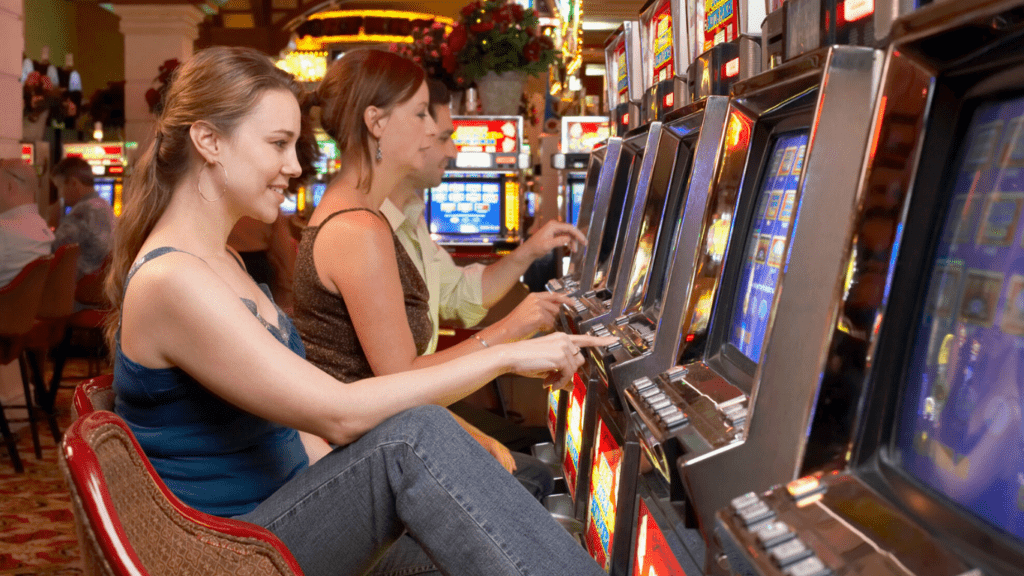Gambling often sparks heated debates, with myths and misconceptions clouding the reality of what responsible gambling truly means. I’ve noticed how these misunderstandings can shape opinions, leading to confusion or even fear about the concept itself. It’s time to separate fact from fiction.
What Is Responsible Gambling?
Responsible gambling involves managing time and money spent on gambling while making informed decisions. It’s a set of guidelines that prioritize enjoyment without harmful consequences. By understanding personal limits and maintaining control, a person ensures that gambling remains an entertainment activity rather than an issue.
Several key practices define responsible gambling. Setting budgets prevents overspending, and limiting session durations helps avoid excessive play. Understanding odds and risks ensures realistic expectations, reducing the likelihood of chasing losses. Seeking support when needed reinforces healthy habits.
This approach includes choosing licensed operators, as they provide tools like self-exclusion and deposit limits. These mechanisms allow individuals to customize their experience per their needs, reinforcing safety. Responsible gambling promotes positive experiences through proactive control rather than reactive solutions.
Myth vs Reality: Debunking Common Misunderstandings

Misconceptions about responsible gambling often create confusion, leading to a skewed perception of its purpose. Addressing these misunderstandings helps emphasize how responsible gambling nurtures enjoyment and safeguards control.
Myth 1: Responsible Gambling Means Never Losing Money
Responsible gambling doesn’t guarantee a win or eliminate losses. Gambling inherently involves risks, and losing is a natural part of the activity. Managing losses through budgets or time limits allows individuals to enjoy gambling without financial strain. For example, setting aside $50 for a session ensures spending aligns with personal finances, even if the entire amount is lost.
Myth 2: Only Addicts Need to Practice Responsible Gambling
Responsible gambling isn’t exclusive to problem gamblers. Everyone engaging in gambling benefits from tools like self-exclusion or deposit limits. These measures reduce risks and ensure sustainable enjoyment. For instance, casual players who periodically review their gambling habits avoid unhealthy behaviors over time.
Myth 3: Setting Limits Is Unnecessary
Neglecting limits often results in overspending or extended gambling sessions. Clear boundaries around time and money promote accountability and minimize harm. For example, a player deciding on a 2-hour session can focus on entertainment instead of potential regrets from prolonged play.
Myth 4: Responsible Gambling Takes Away the Fun
Responsible gambling enhances enjoyment by prioritizing control and avoiding stress. Knowing risks and sticking to personal boundaries prevents impulsive decisions. For instance, understanding game odds creates realistic expectations, allowing players to appreciate wins and accept losses without frustration.
The Importance Of Education And Awareness
Education and awareness form the foundation of responsible gambling. Understanding the principles of responsible play helps individuals make informed choices, avoid risks, and enjoy gambling as a recreational activity.
How Casinos Promote Responsible Gambling
Casinos integrate responsible gambling measures to support safe play. They offer tools like:
- self-exclusion programs
- deposit limits
- time reminders
to help players maintain control. Licensed operators ensure transparency by providing accessible information about game odds, payout percentages, and the risks involved. Many casinos also partner with organizations specializing in gambling education, providing on-site resources and helplines to address problem gambling.
Some operators deliver training to their staff to identify signs of compulsive gambling and intervene appropriately. These measures demonstrate their commitment to fostering a safer gambling environment for players.
The Role Of Personal Accountability
Personal accountability is essential for practicing responsible gambling. Players hold the responsibility to set and adhere to limits on time and money spent, recognizing that gambling should remain an entertainment choice, not a means of income. Developing awareness of emotional triggers, such as losses or stress, helps individuals avoid reckless behavior.
Using available tools like budget calculators or implementing cool-off periods reinforces self-discipline. Educating oneself about the risks and consequences of gambling enables informed decisions, reducing the likelihood of harm.



 Carl Transonicster is a passionate content creator and the voice behind JackpotRollZone, your go-to destination for the latest in sports analytics and digital betting insights. With a talent for simplifying complex topics into engaging, easy-to-digest content, Carl keeps readers informed and empowered. At JackpotRollZone, Carl blends a love for storytelling with a strong understanding of the sports and betting industries, offering fresh perspectives and practical advice to enhance your experience.
Carl Transonicster is a passionate content creator and the voice behind JackpotRollZone, your go-to destination for the latest in sports analytics and digital betting insights. With a talent for simplifying complex topics into engaging, easy-to-digest content, Carl keeps readers informed and empowered. At JackpotRollZone, Carl blends a love for storytelling with a strong understanding of the sports and betting industries, offering fresh perspectives and practical advice to enhance your experience.
